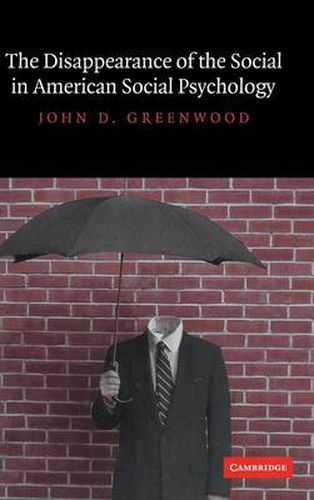Readings Newsletter
Become a Readings Member to make your shopping experience even easier.
Sign in or sign up for free!
You’re not far away from qualifying for FREE standard shipping within Australia
You’ve qualified for FREE standard shipping within Australia
The cart is loading…






The Disappearance of the Social in American Social Psychology is a critical conceptual history of American social psychology. In this challenging work, John Greenwood demarcates the original conception of the social dimensions of cognition, emotion and behaviour, and of the discipline of social psychology itself that was embraced by early twentieth century American social psychologists. He documents how this fertile conception of social psychological phenomena came to be progressively neglected as the century developed, to the point that scarcely any trace of the original conception of the social remains in contemporary American psychology. Greenwood suggests a number of subtle historical reasons why the original conception of the social came to be abandoned, and by demonstrating the historical contingency of this neglect, he indicates that what has been lost may once again be regained. This engaging work will also appeal to social psychologists, sociologists, anthropologists and other social scientists.
$9.00 standard shipping within Australia
FREE standard shipping within Australia for orders over $100.00
Express & International shipping calculated at checkout
The Disappearance of the Social in American Social Psychology is a critical conceptual history of American social psychology. In this challenging work, John Greenwood demarcates the original conception of the social dimensions of cognition, emotion and behaviour, and of the discipline of social psychology itself that was embraced by early twentieth century American social psychologists. He documents how this fertile conception of social psychological phenomena came to be progressively neglected as the century developed, to the point that scarcely any trace of the original conception of the social remains in contemporary American psychology. Greenwood suggests a number of subtle historical reasons why the original conception of the social came to be abandoned, and by demonstrating the historical contingency of this neglect, he indicates that what has been lost may once again be regained. This engaging work will also appeal to social psychologists, sociologists, anthropologists and other social scientists.